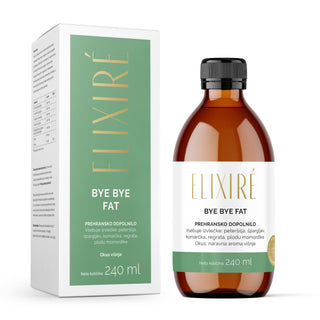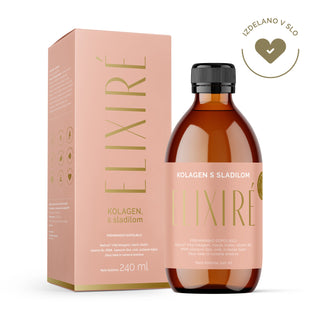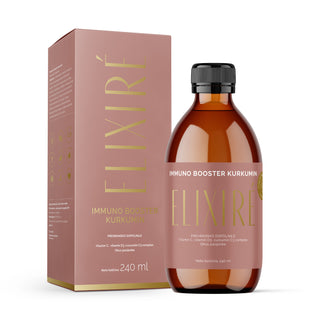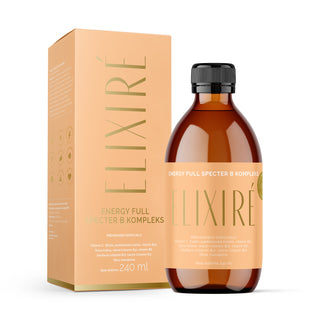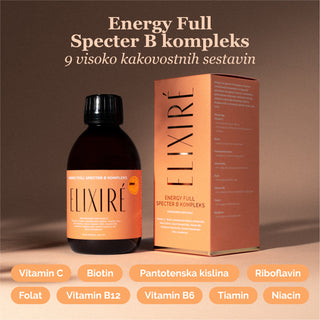Black cumin (Nigella sativa), also known as black cumin, is a plant native to Southwest Asia and has been used in traditional medicine for centuries for its medicinal properties. Its important part is the seeds, from which oil is extracted, which is used in various forms, such as capsules, oil for external use or powder. Black cumin has become the subject of much scientific research in recent years, as it appears to be a very promising plant for supporting health.
The main active component in black cumin seeds is thymoquinone (30-48%), which has numerous medicinal effects, including antioxidant, anti-inflammatory, antivirus and antitumor properties. The higher the proportion of thymoquinone in the oil, the higher the quality of the oil.
Key ingredients and properties of black cumin oil and potential health benefits:
- Thymoquinone: The main bioactive ingredient in black cumin oil is thymoquinone, which is a powerful antioxidant and anti-inflammatory compound. (1)
- Antioxidant properties: Black cumin oil contains a number of compounds that help reduce oxidative stress in the body, which is key to preventing chronic diseases such as cancer, heart disease and diabetes. (1, 3, 4, 5, 6)
- Anti-inflammatory effects: Due to its content of thymoquinone and other active ingredients, black cumin oil helps control inflammation in the body, which is beneficial for various inflammatory conditions such as arthritis, asthma, and respiratory infections. (4, 7)
- Antibacterial action: Research has shown that black cumin oil is effective against various pathogens, including bacteria, which are resistant to multiple antibiotics, which helps fight infections. (2, 3)
- Respiratory system support: Black cumin oil is often used to relieve symptoms of asthma, bronchitis, and other respiratory conditions. It has bronchodilator effects, meaning it helps widen the airways and improve airflow into the lungs. (4, 7, 8)
Side effects and precautions:
Although black cumin oil is generally safe to use, it is recommended that you consult your doctor before using it, especially if you have allergies, are taking medications, or have certain health conditions.
Warnings:
- Not recommended for pregnant and breastfeeding mothers
If you want more information about black cumin, you can read the literature listed below!!!
Literature:
- Source:
Khither, H., Sobhi, W., Khenchouche, A., Mosbah, A. and Benboubetra, M. In-vitro Antioxidant Effect of Thymoquinone. Annual Research & Review in Biology 2018, 25(5), pp. 1-9. doi: 10.9734/ARRB/2018/40165
In this article, the authors investigate the in vitro antioxidant activity of thymoquinone, the main bioactive compound in black cumin seeds (Nigella sativa). Thymoquinone is known for its potential therapeutic properties, including antioxidant activity that helps protect cells from oxidative stress, which is associated with various diseases such as cancer, heart disease, and diabetes. In the study, the authors used various methods to assess the antioxidant activity of thymoquinone, including the DPPH (2,2-diphenyl-1-picrylhydrazyl) assay and other methods to measure the ability to prevent oxidation. The results showed that thymoquinone effectively reduces oxidative stress and may represent a potential natural therapeutic agent to protect against the harmful effects of free radicals. The article confirms that thymoquinone, with its antioxidant properties, offers promising possibilities for use in medicine.
2. Source:
Morsi NM. Antimicrobial effect of crude extracts of Nigella sativa on multiple antibiotic-resistant bacteria. Acta Microbiol Pol 2000; 49(1): 63-74
In the article Morsi (2000) The author investigated the antimicrobial activity of crude extracts of Nigella sativa (black cumin seeds) against bacteria resistant to various antibiotics. The author tested the efficacy of various extracts (including ethanolic and aqueous extracts) against several bacteria, including carriers of resistance to common antibiotics, such as Escherichia coli, Pseudomonas aeruginosa, Staphylococcus aureus, and others. The results showed that Nigella sativa extracts have significant antimicrobial activity against a broad spectrum of bacteria, including those resistant to multiple antibiotics. The study confirms the potential of Nigella sativa as a natural alternative treatment for infections caused by antibiotic-resistant bacteria, which is especially important in light of the growing problem of bacterial drug resistance.
3. Source:
Chaieb K, Kouidhi B, Jrah H, Mahdouani K, Bakhrouf A. Antibacterial activity of Thymoquinone, an active principle of Nigella sativa and its potency to prevent bacterial biofilm formation. BMC Compl Altern Med 2011; 11: 29
In the article Chaieb et al. (2011) The authors investigated the antibacterial activity of thymoquinone, an active ingredient in Nigella sativa (black cumin seed), and its ability to inhibit the formation of bacterial biofilms. Biofilms are structures in which bacteria organize themselves and are often resistant to antibiotics, making it difficult to treat infections. The authors tested the effect of thymoquinone on a variety of bacteria, including Staphylococcus aureus, Escherichia coli, and Pseudomonas aeruginosa. The results showed that thymoquinone has significant antibacterial activity against a broad spectrum of pathogens. In addition, thymoquinone effectively inhibited the formation of bacterial biofilms, meaning it may help prevent infections that are often resistant to standard treatments. The study highlights the potential of thymoquinone as a natural agent for treating infections, especially in biofilm-forming and drug-resistant bacteria.
4. Source:
Ahmad A, Husain A, Mujeeb M, et al. A review on the therapeutic potential of Nigella sativa: A miracle herb. Asian Pac J Trop Biomed. 2013;3(5):337-352. doi:10.1016/S2221-1691(13)60075-1
In review Ahmad et al. (2013) The authors reviewed the therapeutic potential of Nigella sativa (black cumin seeds), which has long been valued for its medicinal properties in traditional medicine. The article examines the various biological effects of this plant, including its antimicrobial, anti-inflammatory, antioxidant, anticancer, and immunomodulatory properties. The authors analyzed numerous studies that showed that the active compounds in Nigella sativa, primarily thymoquinone, are responsible for a number of therapeutic effects, including by protecting against oxidative stress, improving liver function, lowering blood sugar levels and alleviating inflammatory processes. The article highlights the potential of Nigella sativa as a medicinal plant for various diseases, including cancer, diabetes, asthma, and cardiovascular disease.Furthermore, the authors note that much more clinical research is needed to fully exploit the therapeutic potential of this plant.
5. Source:
Khan, A., Chen, H.-C., Tania, M., & Zhang, D.-Z. (2011). Anticancer Activities of Nigella sativa (Black Cumin). African Journal of Traditional, Complementary and Alternative Medicines, 8(5S). doi:10.4314/ajtcam.v8i5ss.10
In the article Khan et al. (2011) The authors examined the anticancer properties of Nigella sativa (black cumin seeds). The authors analyzed various studies that examined the effects of Nigella sativa and its bioactive components, mainly thymoquinone, on cancer prevention and treatment. The article summarizes evidence that Nigella sativa extracts have several mechanisms by which they can inhibit the growth of cancer cells, including induction of apoptosis (programmed cell death), inhibition of cancer cell proliferation, blocking angiogenesis (the formation of new blood vessels that nourish tumors), and inhibition of metastasis (the spread of cancer cells to other parts of the body). Studies have shown that Nigella sativa may have an effect on various types of cancer, including breast, lung, prostate and colon cancer. The article concludes that Nigella sativa, mainly due to the presence of thymoquinone, represents a promising natural therapy for fighting cancer, but further research and clinical trials are needed to fully understand its potential and mechanisms of action in fighting cancer.
6. Source:
Banerjee, S., Kaseb, A.O., Wang, Z., Kong, D., Mohammad, M., Padhye, S., Sarkar, F.H. and Mohammad, R.M. (2009). Antitumor activity of gemcitabine and oxaliplatin is augmented by thymoquinone in pancreatic cancer. Cancer Res., 69: 5575-5583.
In the article Banerjee et al. (2009) The authors investigated the synergistic effect of thymoquinone (an active compound from Nigella sativa) in combination with two chemotherapeutic drugs, gemcitabine and oxaliplatin, in the treatment of pancreatic cancer. The authors conducted studies in pancreatic cancer cells and in animal models and found that thymoquinone enhanced the antitumor effect of gemcitabine and oxaliplatin. Thymoquinone acted as a potentiating agent, enhancing the cytotoxicity of these chemotherapeutic drugs, leading to a greater reduction in tumor growth. The authors showed that thymoquinone affects several mechanisms, including induction of apoptosis (programmed cell death), inhibition of cancer cell proliferation, and reduction of cancer cell resistance to treatment. The study also suggested that thymoquinone may reduce the side effects of chemotherapy by helping to protect normal tissues from damage. The article concludes that the combination of thymoquinone with gemcitabine and oxaliplatin represents a promising strategy for the treatment of pancreatic cancer, but further research is needed to confirm these findings and develop clinical applications.
7. Source:
Amin B., Hosseinzadeh H. (2016) Black Cumin (Nigella sativa) and Its Active Constituent, Thymoquinone: An Overview on the Analgesic and Anti-inflammatory Effects. Planta Medica. 82, 8-16
In the article Amin and Hosseinzadeh (2016) The authors presented a review of the analgesic (pain-relieving) and anti-inflammatory effects of Nigella sativa (black cumin seeds) and its main bioactive compound, thymoquinone. Thymoquinone has been identified as a key component responsible for many of the therapeutic effects of this plant, including the reduction of pain and inflammation.The authors reviewed various studies that analyzed the effects of thymoquinone on models of pain and inflammation, both in animal models and in-vitro. They found that thymoquinone works through various mechanisms, including inhibiting the production of inflammatory mediators such as prostaglandins and cytokines and reducing oxidative stress. In addition, thymoquinone increases the activity of the body's natural pain-relieving mechanisms, which helps relieve pain. The article also highlights that these effects of thymoquinone are important for the treatment of various inflammatory and pain conditions, such as arthritis, respiratory tract inflammation, and musculoskeletal pain.The authors conclude that Nigella sativa and thymoquinone represent a promising natural alternative for the treatment of pain and inflammation, but further clinical research is needed to confirm their therapeutic benefits in a broader treatment context.
8. Source:
Gholamnezhad G., Keyhanmaneshb R., Hossien Boskabady M. (2015) Anti-inflammatory, antioxidant, and immunomodulatory aspects of Nigella sativa for its preventive and bronchodilatory effects on obstructive respiratory diseases: A review of basic and clinical evidence. Journal of Functional Foods. 17, 910-927.
In the article, the authors presented a review of existing research in humans and animal models that showed that Nigella sativa (in the form of powder, oil, or extract) can reduce symptoms of obstructive respiratory diseases, such as cough, difficulty breathing, and lack of oxygen in the blood. Studies have shown that regular use of Nigella sativa can improve quality of life patients with asthma and COPD, as it reduces the exacerbation of the disease. The potential therapeutic effects of its active ingredient are highlighted, thymoquinone, which helps reduce inflammation, protect against oxidative damage, and improve immune response and bronchial patency. They found that Nigella sativa has shown promise as a natural remedy for managing obstructive airway diseases such as asthma and COPD. Due to its anti-inflammatory, antioxidant, immunomodulatory, and bronchodilator properties, it has the potential to be used as part of a holistic treatment for these diseases. The article highlights that Nigella sativa could be a useful adjunct to traditional treatments for obstructive airway diseases, but further research is needed to confirm the exact mechanisms and safety of long-term use.
9. Source:
Al-Seeni, M.N., El Rabey, H.A., Zamzam, M.A., Alnefayee A.M. (2016) The hepatoprotective activity of olive oil and Nigella sativa oil against CCl4 induced hepatotoxicity in male rats. BMC Complement Altern Med. 16, 438
In the article, the authors studied hepatoprotective (hepatoprotective effects) properties of two types of oils: olive oil and Nigella sativa (black cumin) oil. In this study, male rats exposed to CCl₄ to induce liver injury. After exposure to CCl₄, rats were given different treatments with olive oil and Nigella sativa oil and the effects of these oils on liver injury parameters such as enzyme levels (e.g. ALT, AST), oxidative stress and histological changes in liver tissue were studied. The results showed that both olive oil and Nigella sativa oil reduced oxidative stress and inflammation and protect liver cells from damage, caused by CCl₄. These findings support the use of these natural oils as potential therapeutic agents to protect the liver from toxic substances, which opens up possibilities for further research and development of natural therapeutic approaches for the treatment of liver diseases.
10. Source:
Dehkordi, F.R. and Kamkhah, A.F. (2008), Antihypertensive effect of Nigella sativa seed extract in patients with mild hypertension. Fundamental & Clinical Pharmacology. 22, 447-452.
The article examines antihypertensive effect (blood pressure lowering effect) of Nigella sativa seed extract in patients with mildly elevated blood pressure (hypertension). The aim of the study was to examine whether Nigella sativa (black cumin) seed extract has a blood pressure lowering effect in people who have mild hypertension (mildly elevated blood pressure), meaning their blood pressure is not high enough to require immediate medical treatment, but is still elevated. After treatment with Nigella sativa extract, patients showed statistically significant reduction in blood pressure, both systolic and diastolic blood pressure. This effect was especially noticeable after a certain period of treatment. The research confirms that Nigella sativa seed extract has the potential to lowering blood pressure in patients with mild hypertension. This means that Nigella sativa could serve as a natural supplement or adjunct in the management of mild hypertension, along with traditional treatment methods.

